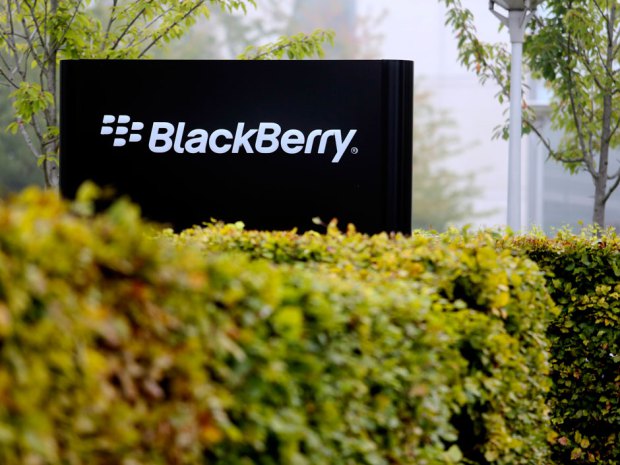 NEWS
NEWS
 NEWS
NEWS
 NEWS
NEWS
![]() BlackBerry’s troubled businesses might be on life support these days, but that hasn’t stopped a flurry of reports covering its ongoing troubles this week. First up was the news that Fairfax Financial Holdings, the company set to takeover BlackBerry for $4.7 billion, failed to raise the necessary cash, causing the deal to collapse. As a last resort Fairfax has instead decided to pump in about $1billion into the company alongside other investors in a desperate bid to revive it.
BlackBerry’s troubled businesses might be on life support these days, but that hasn’t stopped a flurry of reports covering its ongoing troubles this week. First up was the news that Fairfax Financial Holdings, the company set to takeover BlackBerry for $4.7 billion, failed to raise the necessary cash, causing the deal to collapse. As a last resort Fairfax has instead decided to pump in about $1billion into the company alongside other investors in a desperate bid to revive it.
This was followed by yesterday’s news that BlackBerry had hired ex-Sybase chief executive office John Chen to replace the outgoing Thorsten Heins as its new CEO. Chen, who led Sybase to 55 consecutive quarters of profitability, $2.8 billion generated cash, and a 28 percent compound annual growth rate, said that he aims to switch BlackBerry’s focus to the machine-to-machine space.
“We have all the ingredients to become the leader in that embedded machine-to-machine space,” Chen said. “I figure with our focus and [by thinking] long term, [by doing] the right thing today, a step at a time, I think we’re going to build tremendous value for shareholders.”
Now, a rather interesting report surfaced today courtesy of The Globe and Mail, which suggests that all of this very nearly didn’t happen. According to the report, China’s Lenovo was this close to buying out the ailing Canadian smartphone maker, on the verge of tending a bid to buy the company lock, stock and barrel, only for Canada’s government to put its foot down and block any proposed deal.
The Globe and Mail says that Canada’s government was opposed to a Lenovo takeover due to national security concerns, making that very clear in a number of high level meetings with officials from the company. In those meetings, government officials reportedly told BlackBerry that they would never approve any deal, because the smartphone maker is “deeply tied” to Canada’s national telecoms infrastructure.
Because the government would never have stood for it, BlackBerry refused to even consider Lenovo’s bid for the firm, despite the Chinese company being “very interested” in the deal, according to a weekend report from The China Daily – which of course happens to be a mouthpiece of China’s Communist Party, meaning that the government was undoubtedly 100% behind Lenovo’s takeover bid.
For Lenovo, the world’s leading PC maker, a takeover of BlackBerry would have brought obvious benefits. Despite Lenovo’s position at the top of the PC tree, sales of laptops and desktops are in a seemingly irreversible decline, and that’s forcing the company to expand its mobile business. Had it bought BlackBerry, Lenovo would have secured a well-known mobile platform, dozens of valuable patents and numerous established sales channel partnerships in markets like the US and Europe.
A takeover would have been useful for China’s government too – and not just for its spying efforts. Had Lenovo bought out BlackBerry, it would have helped to bring another major western brand into China, giving Chinese technology makers another bridge into foreign markets like the US and Europe.
Support our mission to keep content open and free by engaging with theCUBE community. Join theCUBE’s Alumni Trust Network, where technology leaders connect, share intelligence and create opportunities.
Founded by tech visionaries John Furrier and Dave Vellante, SiliconANGLE Media has built a dynamic ecosystem of industry-leading digital media brands that reach 15+ million elite tech professionals. Our new proprietary theCUBE AI Video Cloud is breaking ground in audience interaction, leveraging theCUBEai.com neural network to help technology companies make data-driven decisions and stay at the forefront of industry conversations.